Category: Lesson Aids
-
Books of Interest to the LDS Nerd
A few of these are forthcoming, a few have appeared recently. I am compelled to read them all, as soon as I can get to them. Now Available Charles Harrel,“This Is My Doctrine”: The Development of Mormon Theology (Kofford Books) “In this first-of-its-kind comprehensive treatment of the development of Mormon theology, Charles Harrell traces the…
-
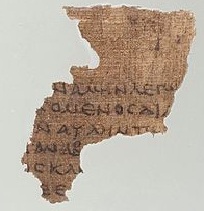
NT Sunday School Lesson 37: Hebrews
The book of Hebrews is what scholars call a “homiletic midrash” on Psalms 110, meaning that it a sermon responding to Psalm 110. It might be useful to read that psalm before reading Hebrews and to keep it in mind as you read Hebrews. Most contemporary scholars, including some LDS scholars, do not believe that…
-
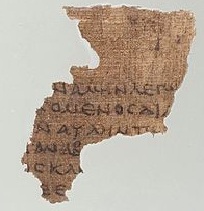
NT Sunday School Lesson 36: Romans
I have to confess that Romans is perhaps my favorite book of scripture. Given the way that most Latter-day Saints think of Romans, that marks me as at least strange, if not perverse. It also means that I will have to restrain myself to keep the notes for this lesson to a reasonable length. To…
-
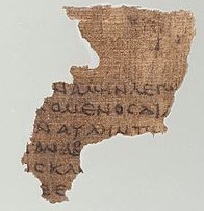
NT Sunday School Lesson 35: 2 Corinthians
Background 1 and 2 Corinthians are two of perhaps four letters that Paul wrote to the saints in Corinth. The first letter (referred to in 1 Corinthians 5:9-13) has not been preserved. 1 Corinthians is the second letter, written partially in response to reports of problems in Corinth and partially in response to questions that…
-

NT Sunday School Lesson 34: 1 Corinthians 11-16
Every so often I insert this reminder: These are study notes, not notes for a lesson. Of course, studying the chapter can help one prepare for the lesson, and the same questions used for study can be used to teach a lesson. But the primary purpose of these notes is to help people think about…
-

NT Sunday School Lesson 33: 1 Corinthians 1-6
Some background on 1 Corinthians (in addition to that given in the Bible Dictionary): The church at Corinth was founded by Paul in 51 A.D, and this letter was probably written in the early spring of 57. Corinth had a reputation for debauchery in the ancient world, and that in a world that was tolerant…
-
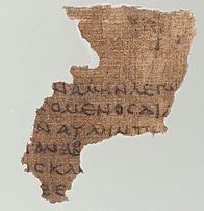
NT Sunday School Lesson 32: Acts 18:23-20:38; Galatians
The readings from Acts tell of Paul’s third missionary journey, to Galatia, Ephesus, Macedonia, and Greece. (See the maps in your LDS Bible.) Acts 20:28-32 Verse 28: To whom is Paul preaching in these verses? (See verse 17 and footnote “b” for verse 28.) The Greek word translated “overseer” is episkopos, the root word for…
-
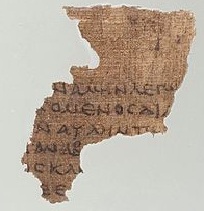
NT Sunday School Lesson 31: Acts 15:36-18:22; 1 & 2 Thessalonians
Almost all of our lessons cover an incredible amount of material. However, this lesson covers even more material than usual: 3 and one-half chapters of Acts, 5 chapters of 1 Thessalonians, and 3 chapters of 2 Thessalonians. To try to make the material more manageable, I will focus on 1 Thessalonians 4-5. As you will…
-
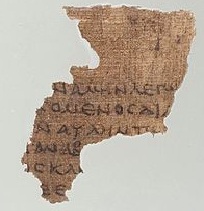
NT Sunday School Lesson 30: Acts 10-14; 15:1-35
This part of Acts tells the story of the beginning of the mission beyond the area immediately surrounding Jerusalem to “the uttermost part of the world” (Acts 1:8). As you read these stories, notice how important the Twelve are in that work. Why do you think that they didn’t delegate more of the missionary work?…
-
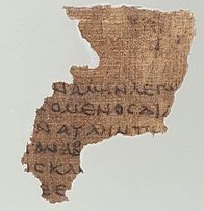
NT Sunday School Lesson 29: Acts 6-9
Acts 6 Verses 1-7: Who were the “Grecians”? We would probably call them “Hellenists.” Remember that as yet the Gospel has not been preached to the Gentiles, so who might these people have been? Who were “the Hebrews”? Is there anything comparable to this division in today’s Church? Why were the Grecians complaining? The word…
-

NT Testament Sunday School Lesson 28: Acts 1-5
There are several stories in these chapters: In chapter 1, we learn that Jesus ministered to the apostles for forty days after his resurrection and that Matthias was chosen to fill the vacancy left by Judas. Chapter 2 tells us of the visit of the Holy Ghost on the day of Pentecost, the gift of…
-

NT Sunday School Lesson 27 (JF): Matthew 28; Luke 24; John 20-21
Matthew 28 Verse 1: Who was the other Mary? (See Matthew 27:57.) Verse 2: Rather than “And behold,” “Look!” is probably a better translation. The angel only rolls back the stone when the two Marys come to see the tomb. Does Jesus leave the tomb at that time, or has he already left? Verses 2-5:…
-

NT Sunday School Lesson 25: Matthew 26:36-46; Mark 14:32-42; Luke 22:39-46
As important as the events in the Garden of Gethsemane were, they receive very little attention in scripture. Matthew has 11 verses on it, Mark also has 11, Luke has 7, John tells us nothing about it at all, though he was as close as anyone to what happened. The Doctrine and Covenants has 4…
-

NT Sunday School Lesson 24: John 16-17
Remember: though these may be useful in helping a person to prepare a Sunday School lesson, they are intended primarily to help one study and prepare for taking part in Sunday School. That’s why you’ll find questions with no answers; they are study questions. John 16 Verses 1-3: In verse 1 Jesus tells the disciples…
-

NT Sunday School Lesson 23: Luke 22:1-38; John 13-15
Getting caught up (as you can see). With this lesson we begin to read about the part of Christ’s life that is traditionally called “the Passion,” the time between the Last Supper and his death on the cross. The word “passion” and the word “passive” are related terms. Why is this part of Jesus’ life…
-

NT Sunday School Lesson 22: Matthew 25
Verses 1-13: The Parable of the Ten Virgins How does the parable relate to that given in Matthew 24:45-51? We know little about marriage ceremonies in Palestine during Jesus’ day. Indeed, we can assume that the customs varied from one place to another in Palestine, making it even more difficult to recover them. Most of…
-

NT Sunday School Lesson 21: Matthew 24 (JST)
It is sometimes helpful to have the Joseph Smith revision (JST) and the King James translation side-by-side, so I have put both versions of chapter 24 together in a PDF file for those who would like to use it. Traditional Christianity finds this chapter ambiguous: in some ways it seems to refer to the destruction…
-

NT Sunday School Lesson 20: Matthew 21-23; John 12:1-8
Matthew 21 Verses 1-7: The end of verse 3 could also be translated “and straightway he will return them.” Verse 5 puts two scriptures together, Isaiah 62:11 and Zechariah 9:9 (as they appear in the Greek rather than the Hebrew version of the Old Testament). What does “daughter of Sion” mean? Why is it important…
-

NT Sunday School Lesson 19 (JF): Luke 18:1-8, 35-43; 19:1-10; John 11
Luke 18 Verses 1-8: The chapter division here (an artificial division not in the original text) makes us not see the connection between the end of Luke 17 and the beginning of 18. Might Luke have any particular prayers in mind in verse 1? How about the desire mentioned in Luke 17:22? In verse 1,…
-

NT Sunday School Lesson 16: John 9-10
Chapter 9 Verse 1: Chapter 8 ends with the phrase “passed by” and chapter 9 begins with those words. Did the events of chapters 9-10 happen as Jesus was leaving the temple precincts, or did they occur later? (See verse 14 for a clue.) Why is it important that the man has been blind since…
-

NT Sunday School Lesson 14: Matthew 18; Luke 10
Matthew 18 Verses 1-4: Why do the disciples ask the question that they pose in verse 1? What does it suggest about their understanding of Jesus’ message? What do you make of the fact that they are arguing about who shall be first so shortly after Jesus has talked about his coming death (Matthew 17:22)?…
-

NT Sunday School Lesson 13: Matthew 15:21-17:13
There are a number of stories in this reading, and they appear not to be given to us in a haphazard way. There is a natural progression from one to the other: (1) Jesus heals the Canaanite woman’s daughter (Matthew 15:21-28). (2) He heals many and multitudes come to him (Matthew 15: 29-31). (3) He…
-

NT Sunday School Lesson 12: John 5-6; Mark 6:30-44; Matthew:14:22-33
As is almost always the case, there is far more here than we can cover in one lesson. These materials will focus on John 5, but I will also include some questions on John 6. John 5 Some have suggested that the gospel of John is partially constructed around seven wondrous works or miracles. (I…
-

NT Sunday School Lesson 11: Matthew 13
A reminder that I post regularly for those who are new to these notes: These are study notes for the lesson material, not notes for creating lessons. I assume that a person would use these over several days, perhaps a week, of study. Of course someone studying the lessons will also be able to create…
-

Peace
Sometimes unintentional mistakes lead to interesting lines of thought. A few weeks ago I misheard a speaker in an LDS meeting. The speaker was quoting John 14:27, and either because of the speaker’s mispronunciation or my imperfect hearing, I heard the word “live” instead of the word “leave.” This lead me to think about what…
-

NT Sunday School Lesson 10 (JF) : Matthew 11:28-30; 12:1-13; Luke 7:36-50; 13:10-17
Matthew 11 Verse 28: What does it mean to come to Christ? Has he already told us how we can do that in readings from some of the previous lessons? The word translated “labor” means “wearying labor.” The phrase “heavy laden” translates a Greek word that means “weighed down.” What wearying, taxing work does Christ…
-

NT Sunday School Lesson 9: Matthew 6-7
As is usually the case, there is a lot of material to cover in this lesson, but the material in these chapters is so important that it would be a shame to focus on only part of it. So I will focus on the Lord’s prayer (Matthew 6:5-15), but I will also provide notes for…
-

NT Sunday School Lesson 8: Matthew 5
The lesson this week picks out the first part of a longer sermon. Matthew 5-7 give us Jesus’ Sermon on the Mount. Even if preparing for only the Sunday School lesson, it is probably best to read the entire sermon to see the context of this part. At the time of Jesus there seems to…
-

NT Sunday School Lesson 7: Mark 1-2; 4:35-41; 5; Luke 7:1-17
For purposes of this lesson, I take Luke 7:1-17 to be a supplement to the miracle stories we read in the material from Mark. So I will make my notes and questions on Mark, assuming that reading and thinking about Luke will be appropriate to them. As usual, I offer the reminder that these are…
-

NT Sunday School Lesson 6: Luke 4:14-32; 5; 6:12-16; Matthew 10
Before we look at some individual verses from this lesson, consider the overall structure of Luke’s narrative and think about how Luke’s story of the calling of the Twelve compares to Matthew’s. I have put in bold the parts that the lesson focuses on, but I have outlined all four chapters so that you can…
